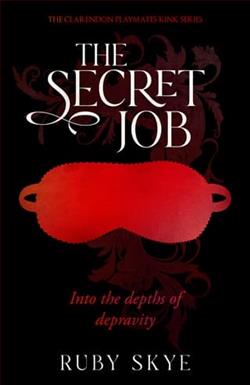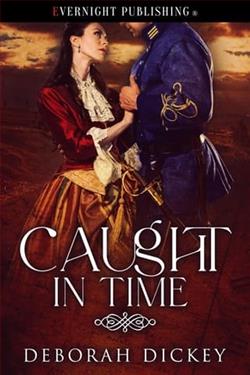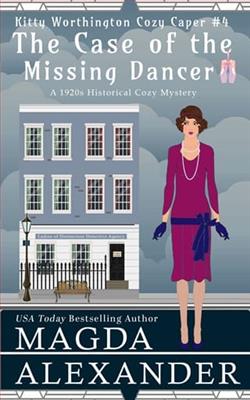Page 63 of The Secrets of Dragonfly Lodge
Anne was still in London and Edmund had been allocated space in a different lab here, and with the building still half-empty, Nancy was disappointed to find herself on her own.
‘I fear I’m spending as little time there as possible,’ she scribbled in a letter to James West one evening at the desk in her dingy bedroom. James had been deployed to Catterick in Yorkshire for army training, and somewhat to her surprise had started writing her long newsy letters. She always answered them promptly. Like him, she had little else to do with her evenings. Edmund took the train back to London each night and she hadn’t yet got to know others at Brandingfield.
She stared up sightlessly at the damp patch in the corner of the bedroom, then wrote:
The hostel forwarded your letter. My billet’s now in a very odd household near Brandingfield. My landlady is one Mrs Harrison, who might easily be related to Miss Pick, she’s so mean. Here’s what her lodgers have to provide for themselves: soap, towels, sheets and pillow cases, lavatory paper, cleaning materials. We must clean our own rooms and not be out beyond ten o’clock without good reason. There was a one-pound deposit for a front door key. I’m not planning to stay here long, but there’s so much to become used to at present, I can’t get my head round finding somewhere else yet.
She looked forward to returning home at weekends, to the safety of her childhood bedroom and to her parents, who, though irritating, loved her. Yet home was no longer the same. Her brother Roger had recently moved into lodgings with friends.
‘Helen has that whey-faced look, don’t you think, Arthur?’ was Mrs Foster’s cryptic remark one Sunday in February as she returned a bowl of hyacinths to the coffee table after the little family’s departure.
‘She just looked exhausted to me,’ Nancy’s father replied. ‘I’m not surprised, looking after that little rascal.’
Nancy considered this. Certainly Helen had looked unhappy, her skin pale and puffy. And Bob was snappish with her, though he managed the baby skilfully enough. At seven months, little Andrew had learned to roll and Bob was up and down, disentangling the child from the flex of the standard lamp and rescuing the cat from his tight grip on her tail.
‘I don’t know whether to be worried.’
‘About what, Mum?’
‘She’s not properly recovered from the first one yet, poor girl.’
‘Oh.’ Nancy twigged. Her mother believed that another baby was on the way. She shuddered. Poor Helen indeed.
‘Don’t get ahead of yourself, dear,’ Nancy’s father warned his wife, but another fortnight proved Mrs Foster right. The baby was expected in the autumn.
By February, Nancy had started to overcome her earlydifficulties at Brandingfield. Her research was going well. The technician was competent, if a bit of a drip. The cleaner learned not to switch off the heat lamp when she plugged in the vacuum cleaner and the locusts thrived in their new home. She bought winter greens to feed them on from a shop she passed in the mornings, leaving enough in their tank to sustain them at weekends. Little by little, she tested humanely killed specimens with different kinds of dust imbued with insecticide and examined them for the effects. It was a slow business, but it was important to be meticulous, to make careful measurements, to note every detail she saw through her microscope and ponder it.
Sometimes the results were puzzling. She felt she was accruing data without knowing how to interpret it, but there was no one to consult. Professor Briggs, her supervisor, was difficult to track down. If he visited Brandingfield, she was rarely told in advance. Only once did he deliberately come to see her, but he merely glanced through her work and asked one or two perceptive questions that left her wanting more before he went on his way. In late February, she wrote to him at Prince’s College, asking for specific guidance, but the reply came from a secretary.‘Professor Briggs is in South America on sabbatical and not expected back until early summer. He’s out in the field and not easily contactable.’Her heart sank as she read the letter. She must plod on by herself.
‘It’s so dispiriting,’ she complained to Edmund that same day, making coffee for them both in the galley kitchen off the main common room. She opened the door of a small fridge that hummed in a corner. ‘Do you suppose this is all right?’She passed him a bottle of milk someone had left among the mouldy sandwiches and other items best left unidentified and he sniffed at it.
‘Let’s risk it,’ he said with one of his grave smiles.
It being mid-morning, the comfortable armchairs were all taken so they sat opposite one another on benches at a wobbly wooden table. ‘I’m sorry about Briggs,’ Edmund said as he mopped a patch of spilled coffee with his handkerchief. ‘Dr Hillman isn’t much in evidence, either, if it makes you feel any better, but I’ve found another chap here who knows all about my flies and he’s giving me advice.’
‘Another student?’
‘No. He’s a researcher with ICP.’
Nancy nodded. Brandingfield would never have opened if it hadn’t been for the generosity of International Chemical Products. She was used to seeing their scientists around the place. They were civil enough, but not particularly interested in the graduate students.
She glanced round the common room. It was different to the Zoo department at Prince’s College in that she saw only men. Men sitting in clusters, talking earnestly over paperwork or laughing at each other’s stories. Men on their own, smoking and staring into space. She was getting used to this masculine environment and no longer found it remarkable, just sometimes tiresome.
There were other women in the building, but many of them were technicians or administrative staff. They tended to congregate in a smaller, mixed-sex staff common room nearby. Other female scientists used that, too, finding the atmospheremore congenial. Nancy went there often and enjoyed the laughter, though she was careful to avoid one or two characters who liked to rule the roost or spread malicious gossip.
In the scientists’ common room, few of the men spoke to her and she felt a need to be watchful, but if Edmund looked her up on his way to have a coffee there or a sandwich, she was happy to accompany him. He didn’t care what other men thought of him befriending her and she blessed him for it.
‘This chap Rutherfurd,’ he went on, ‘is on one of ICP’s projects. Something to do with pesticides and fruit flies. He keeps it close, as you might imagine.’
‘Top secret?’ Nancy laughed.What could be secret about fruit flies?
‘It’s commercial research. Of course they want to keep it for themselves.’
‘So he gets to know about your research, but you don’t find out about his. That doesn’t sound fair.’
‘The commercial context is very different from the academic, Nancy,’ Edmund said mildly. ‘We academics are more collegiate in our approach.’
‘I do know that.’ She blushed at his rebuke of her naïvety. ‘There is plenty of competition in our world, though,’ she said, to indicate she wasn’t completely green.















